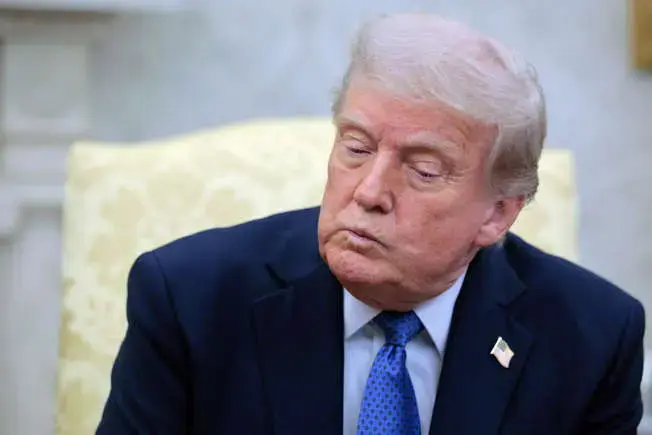
Trump says India offered zero tariffs on U.S. goods but calls it “too late.”
What Did Trump Say About India’s Tariffs?
Trump’s Big Claim: India Offers Zero Tariffs – U.S. President Donald Trump recently made a bold statement on his social media platform, Truth Social. He claimed that India has offered to reduce tariffs on American goods to zero. While this sounds like a major breakthrough in trade relations, Trump wasn’t exactly celebrating. Instead, he said, “It’s getting late. They should have done so years ago.”
Trump also criticized the long-standing trade relationship between the U.S. and India, calling it “one-sided.” According to him, India sells a huge amount of goods to the U.S., but American companies struggle to sell products in India due to high import duties. He described the situation as a “disaster” for U.S. businesses.
This comment came shortly after Indian Prime Minister Narendra Modi met with Russian President Vladimir Putin and Chinese President Xi Jinping at the Shanghai Cooperation Organisation (SCO) summit. Trump’s remarks seem to reflect growing frustration over India’s trade ties with Russia and China, especially in energy and defense sectors.
Why Are Tariffs a Big Deal Between India and the U.S.?
Tariffs are taxes that countries charge on imported goods. When tariffs are high, it becomes expensive for foreign companies to sell their products in that country. For years, U.S. businesses have complained that India’s tariffs are among the highest in the world.
For example, American companies that sell electronics, cars, or agricultural products often face steep duties when trying to enter the Indian market. This makes their products more expensive than local ones, reducing their chances of success.
On the other hand, India exports a wide range of goods to the U.S. from textiles and jewelry to pharmaceuticals and software. In 2024, India exported goods worth $87.3 billion to the U.S., while importing only $41.5 billion in return. That’s a trade surplus of over $45 billion in India’s favour.
Trump believes this imbalance is unfair. He argues that American businesses are losing out because of India’s high tariffs, while Indian companies enjoy easier access to the U.S. market.
What Could Change If India Cuts Tariffs to Zero?
If India truly decides to reduce tariffs on U.S. goods to zero, it could be a game-changer for both countries. American companies would find it easier to sell their products in India, leading to more competition, better prices, and more choices for Indian consumers.
Industries like agriculture, technology, and manufacturing could benefit the most. For example:
- U.S. farmers could export more soybeans, almonds, and apples to India.
- Tech companies could sell more gadgets and software.
- Car makers could introduce new models at competitive prices.
This move could also improve diplomatic ties between the two nations. Trade has always been a key part of the U.S.-India relationship, and reducing barriers could lead to more cooperation in areas like defense, climate change, and education.
However, there’s a catch. Trump says the offer came “too late.” He believes India should have made this move years ago, when trade talks were more active. Now, with tensions rising over India’s oil purchases from Russia and its growing ties with China, the U.S. may not be as eager to strike a deal.
What Happens Next?
So far, the Indian government has not officially responded to Trump’s statement. Trade experts say that even if India has made the offer, turning it into a real agreement will take time. Negotiations over tariffs involve many details—like which products are included, how fast the changes happen, and what protections are given to local industries.
Also, Trump’s comments come at a politically sensitive time. With elections approaching in both countries, leaders may be cautious about making big changes to trade policy. Domestic industries in India may also resist zero tariffs, fearing competition from American companies. Still, the idea of reducing tariffs to zero is a bold one. If handled carefully, it could open new doors for business, create jobs, and strengthen the bond between two of the world’s largest democracies.
Also read – Tariffs Over Tanks: The Silent War That Kills Economies
Stay informed with the latest news and updates – only on Rapido Updates.